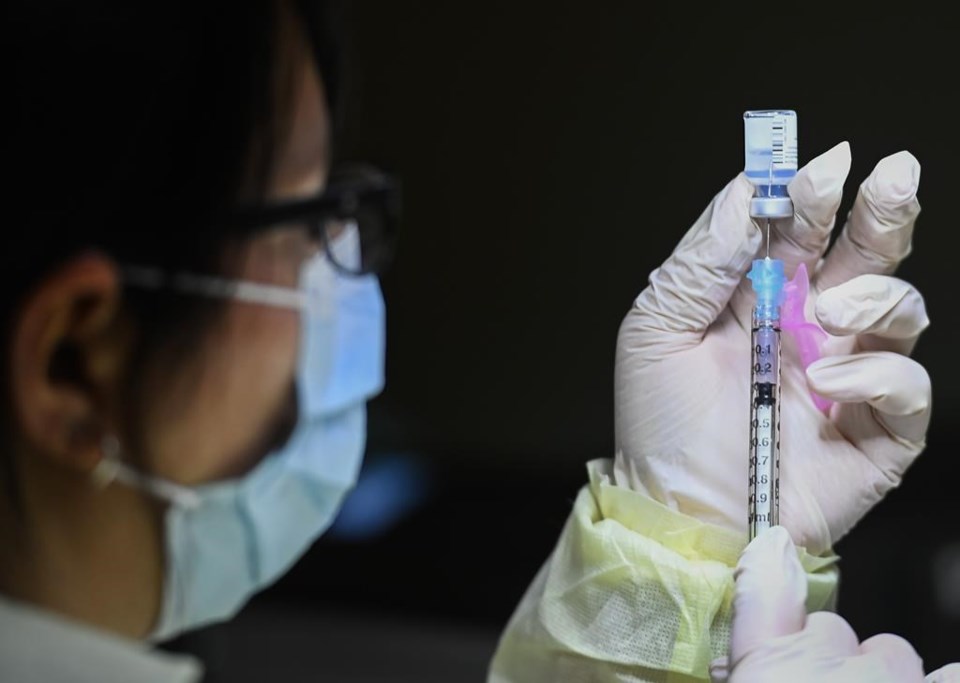Toronto long-term care workers expressed relief and hope as they rolled up their sleeves to receive Pfizer's COVID-19 vaccine at a downtown pilot vaccination clinic Tuesday, the first full day of inoculations.
Eager to remember the historic moment, Limin Liu used her one free arm to hold her mobile phone up in the air and capture a selfie just as the needle entered her arm.
“I think I'm one of the very earliest people to get the vaccine so I'm excited,” Liu said afterwards as she waited the requisite 15 minutes to be sure there were no adverse effects.
The 48-year-old registered nurse said her employer rented “a big bus” so that about 20 staff members could receive their shot Tuesday.
“We just wanted to get it as soon as possible,” Liu said of the group’s eagerness to get vaccinated.
While she said her facility has been largely spared of COVID-19 cases, she cited the importance of protecting staff, residents and their families from infection as a second wave continues to engulf many parts of the country.
Liu joined about 300 long-term care workers expected to receive the newly approved Pfizer/BioNTech vaccine at the downtown clinic, where about 1,500 doses were expected to be doled out by the end of the week.
Each recipient will have to return in three weeks for a second dose that Pfizer says has produced a 95 per cent efficacy rate in clinical trials.
Leanna Graham, clinical director and University Health Network lead for the clinic, pointed to an intense weeklong ramp-up that mapped out key logistics including the vaccine's precise storage and preparation requirements, and a data collection system for each recipient.
She said information about each recipient is entered into a digital database upon arrival to ensure they receive their second dose as scheduled, but also to collect real-world data that may be used to further evaluate the vaccine's performance.
“When they receive the inoculation, as well, that vaccine is documented on the date, the lot number, who gave that vaccine, and any immediate side-effects that somebody would have experienced,” says Graham.
"We really are testing every single element of this logistical chain that we're going through.”
While awaiting her turn in a lineup outdoors, Warlina Florendo said the pandemic has been emotionally draining for many long-term care workers as they care for some of society’s most at-risk citizens.
Although her home's residents have been spared from infections, that doesn't stop the personal support worker from worrying.
"I'm very scared. I can't even be too close to my own child because I don't know what I'm bringing home,” said Florendo, whose son lives away from her with his dad.
“We have to protect everybody.”
This report by The Canadian Press was first published Dec. 15, 2020.
Cassandra Szklarski, The Canadian Press
